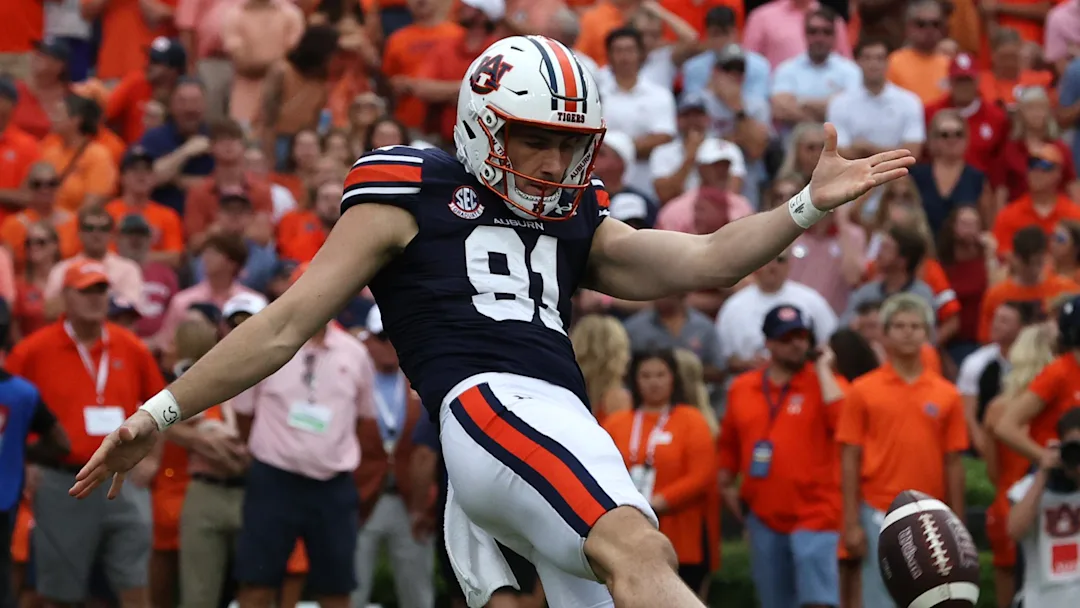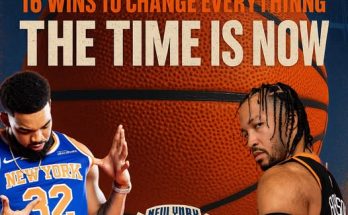The Minnesota Vikings added a fresh, experienced leg to their special teams unit following the 2025 NFL Draft, signing former Auburn Tigers punter Oscar Chapman as an undrafted free agent. While his name wasn’t called during the seven rounds of the draft, Chapman’s body of work in the SEC and his unique background made him a compelling prospect for a team looking to reinforce its depth at one of the game’s most underappreciated yet crucial positions.
Chapman, originally from Australia, joined Auburn in 2020 and quickly developed into one of the most reliable punters in college football. Known for his calm demeanor, poise under pressure, and elite-level consistency, Chapman finished his college career with over 10,000 punting yards and an average of 43.5 yards per punt. His longest punt at Auburn traveled 70 yards, and he frequently pinned opponents inside their 20-yard line—a trait highly valued at the professional level.
The Vikings’ decision to bring in Chapman speaks to the team’s strategy of finding undervalued talent in the undrafted market. With punting often treated as an afterthought during the draft process, teams typically wait to address the position until the post-draft free agent frenzy. For Minnesota, Chapman represents both a developmental project and legitimate competition for incumbent punter Ryan Wright.
Wright, who joined the Vikings in 2022 as a UDFA himself, has had a solid run with the team. However, the NFL is a league driven by results and performance, and the front office is always looking to raise the level of internal competition. By signing Chapman, the Vikings are ensuring that no position is safe, especially on special teams where games can turn on field position and execution in the kicking game.
Chapman brings a different flavor to the punting game. His Australian football background gives him a unique approach—he’s capable of executing end-over-end kicks with pinpoint accuracy, directional punts that neutralize returners, and the occasional rugby-style rollout that confuses coverage units. That unpredictability can be an asset in the NFL, where elite return men often feast on traditional punting patterns. Chapman’s versatility may give the Vikings a tactical edge in field position battles.
At Auburn, Chapman earned the respect of coaches and teammates alike. He wasn’t flashy, but he was dependable. Whether booming a 60-yard kick or dropping one inside the 10-yard line with backspin, he showcased a mastery of his craft that steadily improved each season. His calm, focused demeanor served as a model for consistency—traits that NFL special teams coordinators crave. In interviews, Chapman often deflected praise and credited his success to the coaching staff, special teams unit, and the Auburn culture. That humility, coupled with a relentless work ethic, made him a natural fit for a professional locker room.
Coming from the SEC, Chapman faced elite returners and pressure-packed environments nearly every weekend. The atmosphere in stadiums like Bryant-Denny, Tiger Stadium, and The Swamp forged him into a mentally tough competitor. That experience will be invaluable as he transitions into the high-stakes world of professional football, where one mishit punt can change a game and a season.
The Vikings’ interest in Chapman likely began during the pre-draft process, where he worked out for multiple teams and participated in pro days and private workouts. His combination of leg strength, ball placement, and mental toughness stood out. Though not selected during the draft, he was reportedly one of the most sought-after punters in the UDFA pool, and Minnesota moved quickly to secure his signature once the final pick was made.
For Chapman, signing with the Vikings offers both opportunity and challenge. On one hand, he’s stepping into a team that values special teams and has a history of giving undrafted players a real shot at making the roster. On the other, he’ll have to outkick an established NFL punter during training camp and preseason—a tall order for any rookie. But if there’s one thing Chapman has never shied away from, it’s competition. His entire football journey has been about proving he belongs, from leaving Australia to chase his dream in the U.S. to earning the starting job at a powerhouse program like Auburn.
The move also reflects a broader trend in the NFL: the rise of international specialists. Australian punters have increasingly found success in the league, thanks in part to their unique skill sets and programs like Prokick Australia, which helped launch Chapman’s career. The league has welcomed a wave of talent from Down Under, and Chapman now joins a growing list of Aussies making a name for themselves on Sundays. With the NFL continuing to globalize, Chapman’s presence adds to the diversity and international flair of the Vikings’ roster.
Minnesota fans may not pay much attention to special teams battles in May or June, but they should. The outcome of Chapman’s competition with Wright could have a ripple effect on the entire team. A well-placed punt can flip the field, pin an opponent deep, or even set up a game-winning drive. It’s the kind of hidden yardage that doesn’t always make headlines but often determines outcomes.
Chapman’s training camp will be about more than just hang time and yardage. He’ll need to show chemistry with the long snapper and consistency with placement. NFL teams want punters who can execute specific game plans: pinning the ball near the sideline, avoiding touchbacks, and forcing fair catches. Special teams coordinator Matt Daniels will be watching closely to see how Chapman handles directional kicks, plus situations, and how he performs under simulated pressure.
While it remains to be seen whether Chapman ultimately makes the 53-man roster, the opportunity is there. Injuries, performance fluctuations, and salary cap considerations all factor into special teams decisions. If Chapman impresses in camp, the Vikings could opt to carry him forward or stash him on the practice squad. Either way, his signing reflects the franchise’s commitment to building competition and leaving no stone unturned in the search for impact players.
For now, Chapman is taking the same approach that helped him thrive at Auburn—stay grounded, work hard, and let the results speak for themselves. He’s not one for bold proclamations or headline-grabbing statements. His focus is on improving every day, earning the respect of coaches and teammates, and seizing the moment.
The Vikings have quietly assembled a group of young, hungry players who can contribute immediately or develop into future starters. Chapman fits that mold. He’s not just a punter—he’s a competitor, a technician, and a student of the game. If he earns the job, it will be because he left no doubt during training camp. And if not, he’ll be on the radar of other NFL teams looking for a reliable specialist.
Chapman’s journey from Australia to Auburn to Minnesota is a testament to the global reach of football and the power of perseverance. While punters rarely get the spotlight, every team needs one they can trust. The Vikings believe they may have found that in Oscar Chapman. Now, it’s up to him to prove them right.



